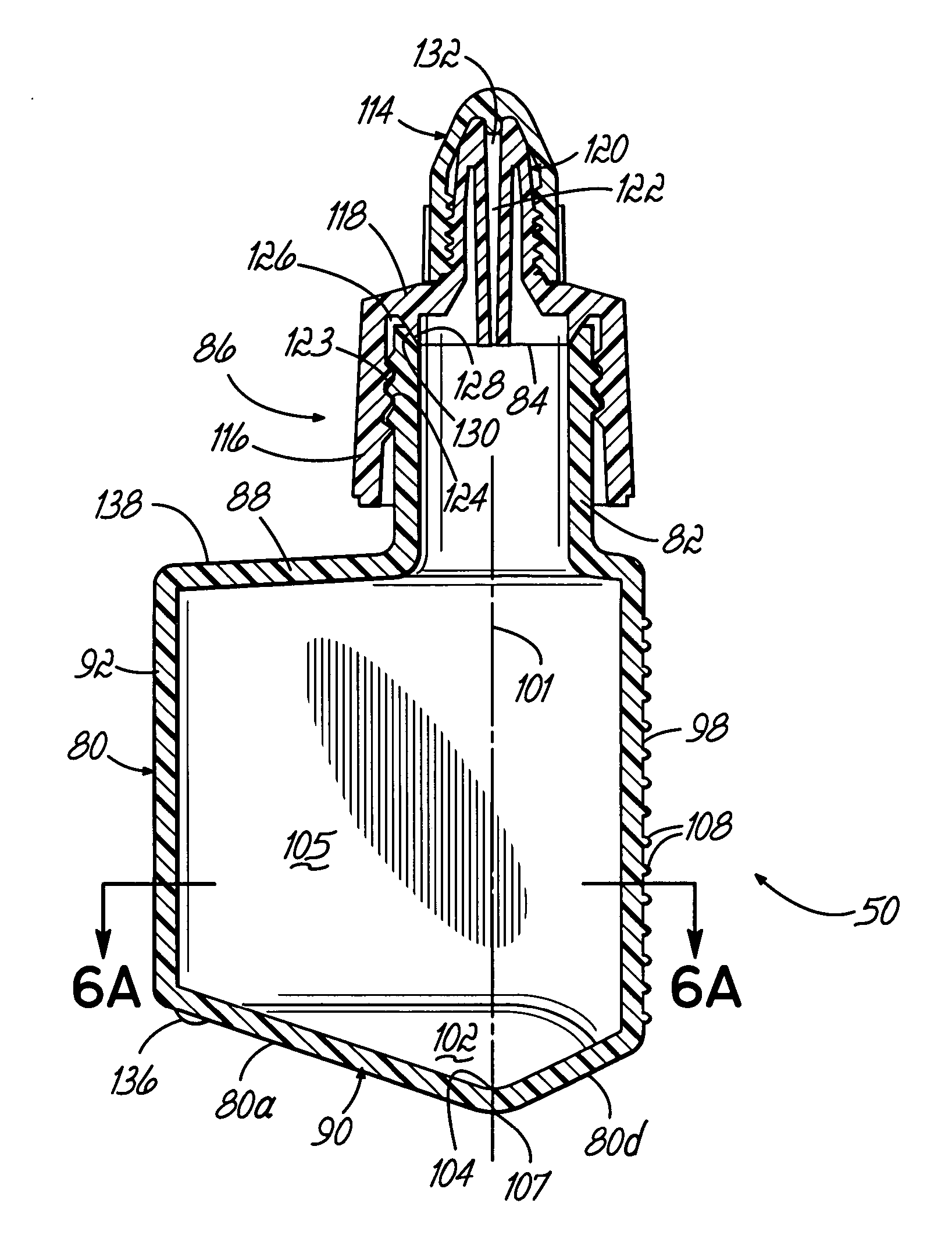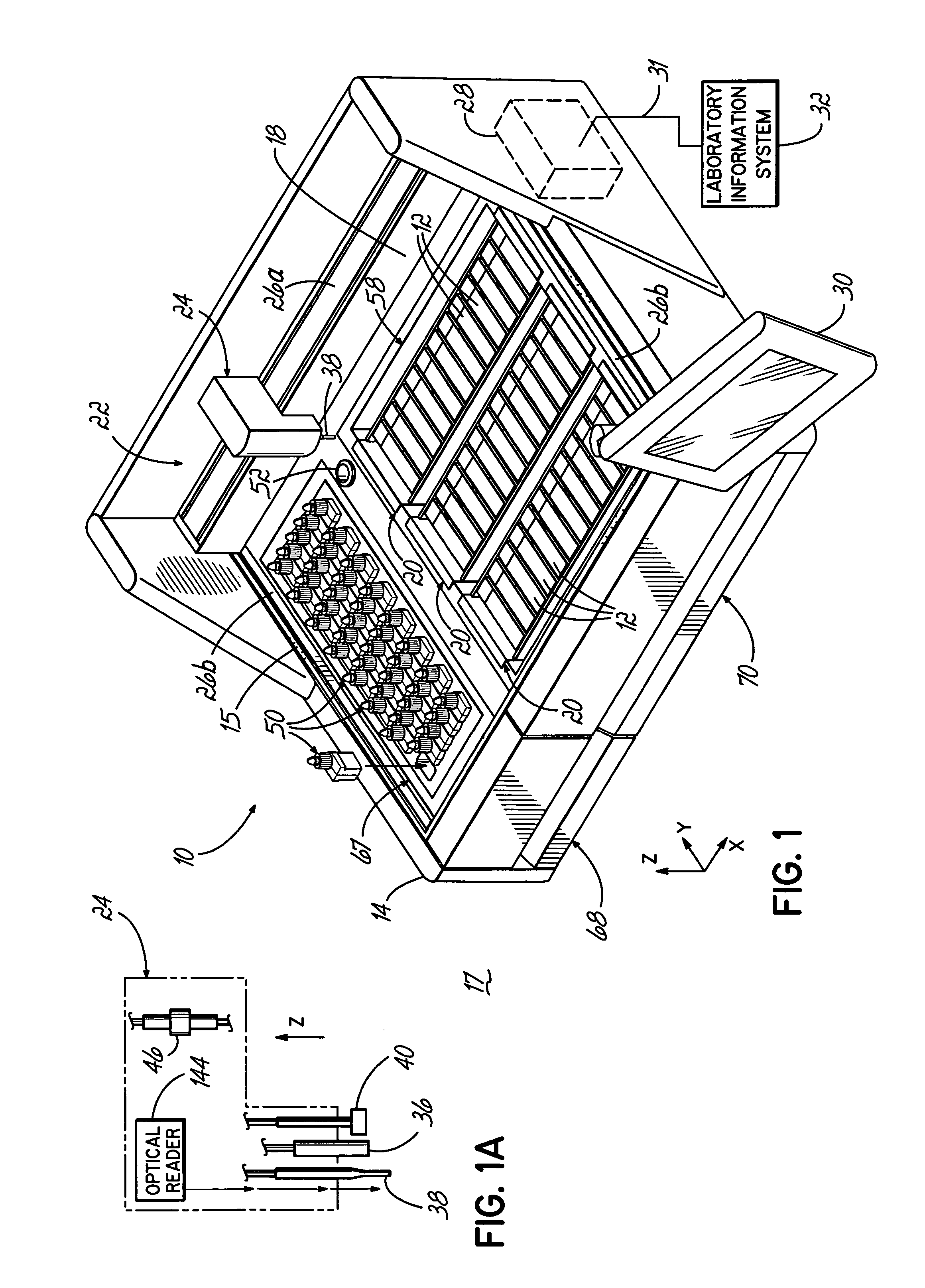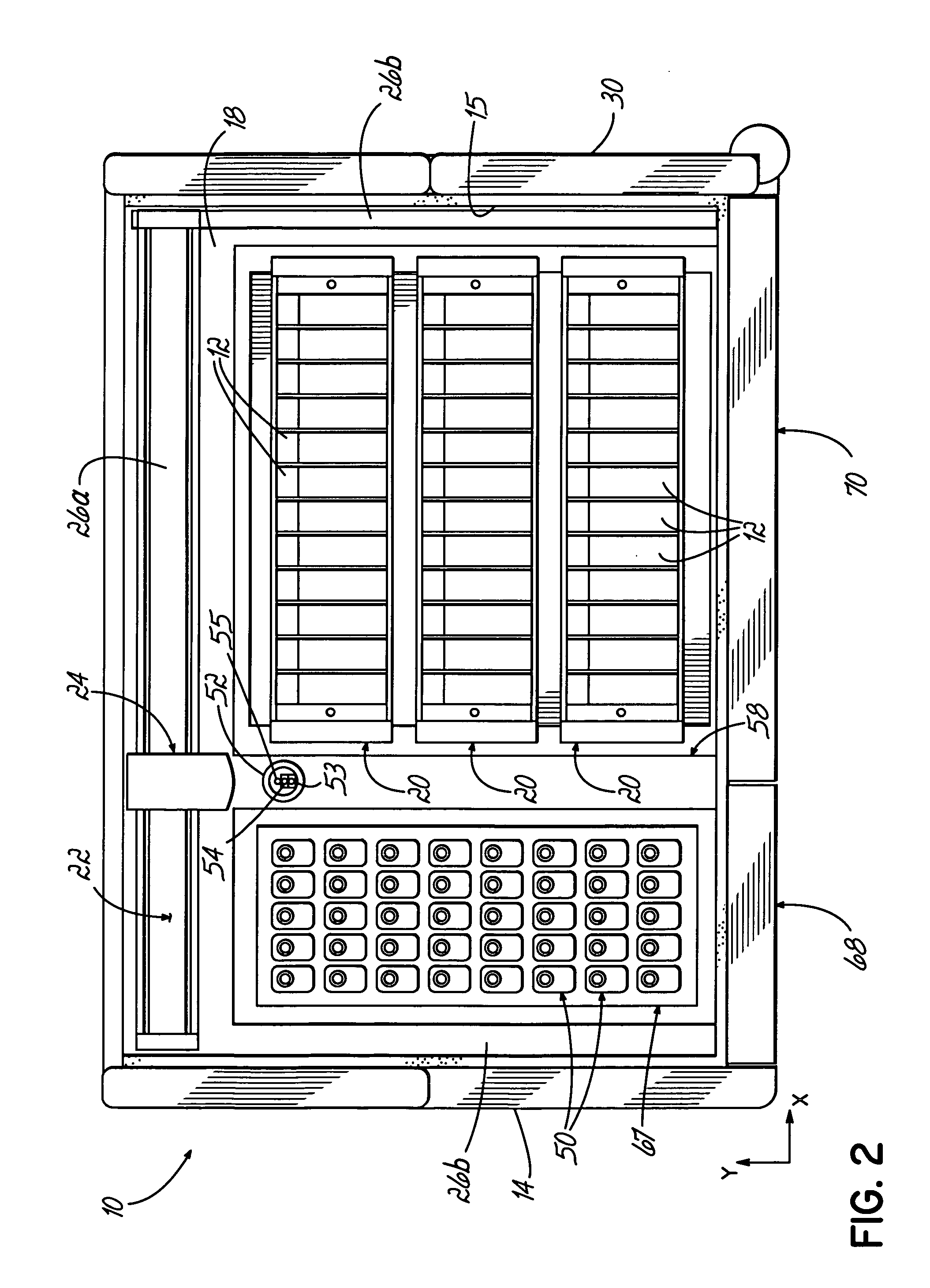Automated tissue staining system and reagent container
a tissue staining system and tissue staining technology, which is applied in the direction of container/bottle construction, rigid containers, special dispensing means, etc., can solve the problems of large one-dimensional bar codes capable of holding a complete set of reagent parameters, waste of reagents, and large amount of reagents,
- Summary
- Abstract
- Description
- Claims
- Application Information
AI Technical Summary
Benefits of technology
Problems solved by technology
Method used
Image
Examples
Embodiment Construction
[0024] To remedy the aforementioned deficiencies of conventional automated tissue staining devices, the present invention provides an apparatus for automatically staining tissue specimens carried by slides according to various staining protocols and a reagent container that significantly reduces the amounts of wasted reagents. As used hereinafter, the term “staining” includes, but is not limited to, reagent uptake, chemical reaction, localization (e.g., antigen-antibody associations), radioactive activation, and the like.
[0025] With reference to FIGS. 1, 2, and 3, the present invention comprises an automatic staining apparatus or autostainer 10 used for staining or otherwise reacting reagents with the cells of tissue specimens mounted on slides 12. The autostainer 10 includes a chassis 14 and a cover or lid 16 (FIG. 3), hinged along its rear horizontal edge, that collectively define a processing space 18 having a controlled environment, such as a controlled humidity. The lid 16 iso...
PUM
| Property | Measurement | Unit |
|---|---|---|
| angle | aaaaa | aaaaa |
| volume | aaaaa | aaaaa |
| volume | aaaaa | aaaaa |
Abstract
Description
Claims
Application Information
 Login to View More
Login to View More - R&D
- Intellectual Property
- Life Sciences
- Materials
- Tech Scout
- Unparalleled Data Quality
- Higher Quality Content
- 60% Fewer Hallucinations
Browse by: Latest US Patents, China's latest patents, Technical Efficacy Thesaurus, Application Domain, Technology Topic, Popular Technical Reports.
© 2025 PatSnap. All rights reserved.Legal|Privacy policy|Modern Slavery Act Transparency Statement|Sitemap|About US| Contact US: help@patsnap.com



